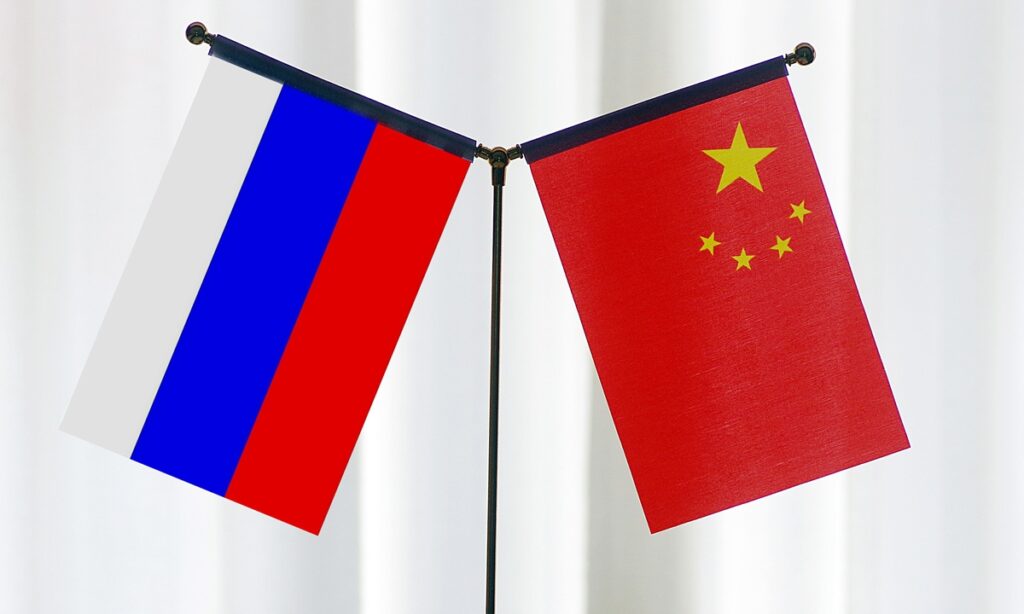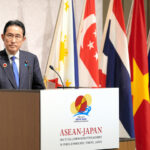At the invitation of Chinese Premier Li Qiang, Mishustin is scheduled to attend the 28th regular meeting between the Chinese and Russian heads of government.
This is a vital mechanism for implementing the consensus reached by the two heads of state and coordinating bilateral practical cooperation in various fields since 1996, analysts said.
Mishustin is also scheduled to meet with Chinese President Xi Jinping, according to Russian news agency TASS.
Chinese Foreign Ministry spokesperson Wang Wenbin said the two sides will have an in-depth exchange of views on bilateral relations, practical cooperation and issues of common interest during the meeting, against the backdrop of the 75th anniversary of China-Russia diplomatic relations and the Year of Culture in 2024.
During Mishustin’s visit, special attention will be paid to the expansion of trade and economic cooperation and the promotion of large-scale joint projects in various areas. The two sides plan to adopt a joint communiqué and sign a number of bilateral documents, as reported by TASS, citing the Russian government.
Cooperation with China “is developing steadily in all directions despite the difficult external economic situation,” the Russian government said. Analysts believe that expanding cooperation in the energy sector, agriculture and humanitarian exchanges would be the key focus during Mishustin’s visit.
Although the high-level meeting is a routine mechanism, Mishustin’s second visit to China within one year reflects the high priority that both sides attach to this relationship, Cui Heng, a scholar from the Shanghai-based China National Institute for SCO International Exchange and Judicial Cooperation, told the Global Times on Tuesday.
When Mishustin made his first China visit in May, leading a 500-people delegation, The two sides signed a series of agreements on services trade cooperation, sports, patents, and Russian millet exports to China.
The two governments will further implement direction of the cooperation set by the two head of states during their meetings in March and November, Cui said.
Stronger bond
Experts said that the regular meeting is expected to facilitate tackling some “bottlenecks” in the two countries’ economy and trade, such as infrastructure connectivity and insufficient grain transportation capacity, as well as the construction of the Northern Sea Route.
Zhang Hong, an associate research fellow at the Institute of Russian, Eastern European and Central Asian Studies of the Chinese Academy of Social Sciences (CASS), told the Global Times on Tuesday that the two countries are likely to focus on cooperation in the energy sector, such as discussing the construction of the second Russia-China land gas pipeline, the Power of Siberia 2 pipeline, as well as cooperation on nuclear and wind energy.
According to Cui, grain business between China and Russia will also be a focus after the operation of China-Russia “New Land Grain Corridor” started in December, with 70 million tons of Russian grain legumes and oilseeds to be exported to China over the next 12 years.
Trade between China and Russia grew steadily in the first 11 months of 2023, hitting $218 billion, up 26.7 percent year-on-year, and exceeding $200 billion for the first time, according to the latest Chinese customs data. More than 90 percent of the transactions were made in the two countries’ respective national currencies: the ruble and the yuan, according to TASS.
“In the past, China and Russia had good political relations, but lacked corresponding economic connections. However, in recent years, China and Russia have become closer in trade and investment,” Cui said, citing cooperation in manufacturing, especially in the machinery manufacturing chain.
The relationship has gained stronger endogenous dynamics and the two economies become more mutually complementary and interdependent, Cui said.
Another point of increasing cooperation is cultural exchanges.
On Tuesday, Russian Deputy Prime Minister Dmitry Chernyshenko talked with Russian and Chinese students at Peking University (PKU), where he presented the “Order of Friendship” to Ning Qi, vice president of PKU, for her contributions to China-Russia cultural exchanges, Sputnik reported.
Chernyshenko said that more and more people in Russia are learning Chinese, and the Russian government will continue to make every effort to promote fruitful cooperation between the two countries in the fields of education and science.
Geopolitical context
Yet the relationship is facing external pressure and interference, as well as challenges from geopolitical realities, experts said.
On Monday, the EU announced the 12th round of sanctions on Russia, including a ban on Russian natural and synthetic diamonds, a valuable revenue stream for the Kremlin.
“Russia’s political and security situations have been deteriorating,” Zhang said, “Russia’s worsening relations with the US and West cast a shadow on future cooperation between Russia and China.”
The US’ long-arm jurisdiction and dollar hegemony will put some pressure on Chinese companies that do business with Russia, especially if some of them are dependent on US technology. However, the two countries are adapting to the situation and seeking solutions, including local currency settlements, Wang Xiaoquan, an expert from the CASS institute, told the Global Times on Tuesday.
The “decoupling” of the West from Russia has posed challenges but also created opportunities for China, and we have no reason to reject the chance to diversify our supply chain, energy in particular, Zhang said.
According to experts, the keyword in China-Russian relations in the three decades since the end of the Cold War was “smooth,” and in the future, the keyword would be “growth.”
China and Russia have great determination and confidence to continue the momentum of cooperation both at the government level and in the markets, Zhang said.




